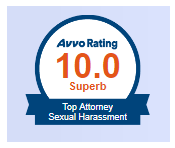CIVIL TORT CLAIMS FOR PHYSICAL ASSAULT, SEXUAL ASSAULT & INTENTIONAL INFLICTION OF EMOTIONAL DISTRESS
There is a movement across the United States to seek redress for assaults and sexual assaults in civil courts. Although we are all too familiar with the criminal justice system as a system of redress for victims of sexual assaults, many victims remain unaware that they may have a viable cause of action for monetary (money) damages against sexual predators in the civil justice court system. These civil actions are becoming more common in courts throughout the U.S. I was the first attorney in Travis County to file a civil lawsuit against a rapist and obtained a judgment of 1.5 million dollars around 1987. My experience and training as a police officer, police chief, and prosecutor helped shaped my destiny as an advocate for victim rights in the civil justice system.
Why file a civil lawsuit against the perpetrator of a sexual assault or the owner of the premises where a sexual assault took place? There are several answers to this question. I think, foremost, that by initiating civil litigation against a perpetrator, a crime victim can help regain her or his feelings or balance and control over their environment. Sexual and physical assaults can cause emotional scars that leave a victim feeling as if they have lost control of their lives. If a crime victim can get out of the “role” of “victim” they may be able to regain a feeling of independence and control over their own life again. This redemption or catharsis may be the most important of all reasons for pursuing civil litigation against a perpetrator.
Other reasons for pursuing civil litigation against predators include, but are not limited to:
(1) Exposing individuals who commit these crimes to the public through media coverage and press releases;
(2) Seeking money damages to assist the victim in obtaining medical and psychological counseling;
(3) Obtaining information about the predator or dangerous premises that may help law enforcement or criminal prosecutors prevent future attacks.
Before one considers going down the path of civil litigation, a conference with an attorney who is well-versed in crime victim law and inadequate security litigation should occur. Beware of attorneys who advertise in the yellow pages or television who claim to be “experts” in personal injury and intentional injury (tort) law. Most attorneys who advertise on TV or in telephone directories have little or no network of former clients for referrals and practice a high-volume “mill” law practice.
Crime victim cases and inadequate security cases are much different than automobile collision personal injury cases. Most lawyers are wholly unequipped to properly investigate these cases and do not understand how to prosecute these civil cases. They do not understand the nature of these cases, the elements of proving these cases, or how to utilize litigation “tactics” to win these cases. There are only a handful of lawyers in the United States who understand these cases. My background as a security supervisor of a 28 story co-ed college dormitory shopping mall complex (Dobie Center in Austin), 4 years street experience as a police officer, experience as a prosecutor, coupled with 25 years litigation experience and 18 years judicial experience give me a unique advantage over other attorneys in this area of law. I am also a licensed EMT-I and have served as a Firefighter/EMS First Responder for 5 years with Austin EMS. I understand the emotional and physical trauma that criminal predators inflict on their victims.
What kind of cases might a crime victim be able to pursue?
- SEXUAL ASSAULT BY KNOWN PERPETRATOR
- SEXUAL EXPLOITATION AND SEXUAL ABUSE BY DOCTOR, THERAPIST, OR CLERGY
- SEXUAL ASSAULT BY UNKNOWN PERPETRATOR ON PRIVATE PROPERTY (PARKING GARAGE, SHOPPING MALL, NIGHTCLUB, APARTMENT COMPLEX)
- SEXUAL HARASSMENT WHICH INCLUDES UNWANTED TOUCHING
An experienced attorney should be able to discuss statutes of limitations which bar civil lawsuits from being pursued if a plaintiff delays too long after the cause of action accrues. For example, a victim of a simple assault by touching has two years to bring her lawsuit against the perpetrator. More serious assaults even ones that cause death are limited to the two-year limitation period (See Texas Civil Practice & Remedies Code, Sec. 16.003). The same limitation applies to a civil cause of action for “Intention Infliction of Emotional Distress” against a perpetrator. I use Intentional Infliction of Emotional Distress claims when I am dealing with non-violent assaults like the office supervisor who is groping on his subordinate female employees and making lewd statements to them. I sued an Austin doctor using simple assault and intentional infliction of emotional distress for a young UT student who was being groped and harassed by this doctor, who employed her. The jury came back with a verdict of $15,000 actual mental anguish damages and a punitive damages award of $30,000 against the doctor.
For Sexual Assaults and Aggravated Sexual Assaults the limitation period is extended to five (5) years (See Texas Civil Practice & Remedies Code, Sec. 16.0045). These include sexual assaults of children and elderly, and sexual assaults where a deadly weapon is utilized or threatened. It is important to note that in all cases involving children that the limitation periods do not begin running until the child turns 18 years of age and becomes a legal adult.
There are specific statutes that address Sexual Exploitation of a Patient by a Health Care Provider. Chapter 81 of the Texas Civil Practice & Remedies Code (TCPRC) addresses these crimes and provides some special damages, such as recovery of all attorneys’ fees for these victims, but it is important to note that the limitation period for these offenses is only three (3) years! These cases include sexual assault and consensual sexual relations between therapist/doctor and patient and may include exploitation of former patients. TCPRC, Chapter 81 defines Mental Health Service “Providers” as including: Licensed Social Workers, Chemical Dependency Counselors, Licensed Professional Counselors, Licensed Marriage and Family Therapists, Clergy, Physicians, and Psychologists. These Providers are Liable to Patients and Former patients for damages for sexual exploitation if the patient or former patient suffers a physical, mental, or emotional injury caused by, resulting from, or arising out of:(a) Sexual Contact Between patient and Provider; (b) Sexual Exploitation of patient by Provider; or (c) Therapeutic Deception of patient by Provider. TCPRC, Section 81.005(a) states that: It is NOT a defense that the sexual exploitation of the patient or former patient occurred: (1) with the consent of the patient; (2) outside the therapy or treatment sessions; or (3) off the premises regularly used by the mental health services provider for therapy or treatment.
A civil judgment against a sexual or physical predator who intentionally (willfully and maliciously) assaults another cannot be discharged by a bankruptcy court. Title 11 of United States Code, Section 523(a)(6) states that a discharge normally allowed under the federal bankruptcy code (for civil judgments) does not discharge an individual debtor from any debt for a willful and malicious injury caused by the debtor.
Unfortunately, the most important factor for an attorney when deciding whether to accept a crime victim case may hinge on whether the perpetrator has any significant assets. Without assets to seize, there is little point to justify the expense and time to pursue civil litigation against the perpetrator. When meeting with potential clients I discuss this matter fully with the client. Every case is different. There is never a charge to discuss a case at my law firm. All cases that are accepted are solely on a percentage fee of the total amount we are able to recover for our clients plus expenses. However, if we are unable to obtain a positive benefit for our clients, the client does not owe us a penny, not even our costs. We have a female Registered Nurse for our women clients who are more comfortable discussing their case with another woman.
Yours very truly,
Attorney Kevin R. Madison










